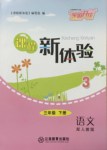题目内容
As we know, everyone has problems. And we don’t deal with our problems, we can easily become unhappy. So how do we deal with our problems? Here are some ways.
By learning to forget
Most of us have probably been with our friends, parents or teachers. Perhaps they said something you didn't like, or you felt unfair. Sometimes, people can stay angry for years about a small problem. Time goes by, and good friendships may .
Perhaps we have seen young children playing together. Sometimes they have disagreements, and decide to each other. However, this usually does not. for long. This is an important. for us: we can solve a problem learning to forget.
By regarding problems as challenges
Many students often complain about . They might feel they have work to do sometimes, or think the school rules are too We must learn how to change these "problems" into "challenges". Education is an important part of our development. young adults, it is our duty to try our best to deal with each challenge in our education the help of our teachers.
By thinking of something worse
By comparing. to other people, you will find your problems are not so terrible. Think about Stephen Hawking, for example, a very clever scientist, regards his many physical problems as unimportant. He can't walk even speak, but he has become very famous and successful. Don’t worry about problems. Let's face the challenges instead.
By learning to forget
Most of us have probably been with our friends, parents or teachers. Perhaps they said something you didn't like, or you felt unfair. Sometimes, people can stay angry for years about a small problem. Time goes by, and good friendships may .
Perhaps we have seen young children playing together. Sometimes they have disagreements, and decide to each other. However, this usually does not. for long. This is an important. for us: we can solve a problem learning to forget.
By regarding problems as challenges
Many students often complain about . They might feel they have work to do sometimes, or think the school rules are too We must learn how to change these "problems" into "challenges". Education is an important part of our development. young adults, it is our duty to try our best to deal with each challenge in our education the help of our teachers.
By thinking of something worse
By comparing. to other people, you will find your problems are not so terrible. Think about Stephen Hawking, for example, a very clever scientist, regards his many physical problems as unimportant. He can't walk even speak, but he has become very famous and successful. Don’t worry about problems. Let's face the challenges instead.
| 小题1: |
|
| 小题2: |
|
| 小题3: |
|
| 小题4: |
|
| 小题5: |
|
| 小题6: |
|
| 小题7: |
|
| 小题8: |
|
| 小题9: |
|
| 小题10: |
|
| 小题11: |
|
| 小题12: |
|
| 小题13: |
|
| 小题14: |
|
| 小题15: |
|
小题1:C
小题2:D
小题3:C
小题4:C
小题5:B
小题6:B
小题7:C
小题8:A
小题9:A
小题10:B
小题11:A
小题12:C
小题13:C
小题14:B
小题15:D
试题分析:每一个人都有难题。如果我们不能处理好我们的问题,我们很容易变得不开心。为了帮助大家解决这个问题,作者提出几个解决方案,如:学会忘记,通过将问题视为挑战和想一想更糟糕的事情。通过短文的介绍,每个人都有很大的启发。
小题1:考查连词及语境的理解。A. unless除非;B. when什么时候;C. if如果;D. while当……时候。联系句意:每一个人都有难题。如果我们不能处理好我们的问题,我们很容易变得不开心。表示如果之意,因此用引导词if.故选C
小题2:考查形容词及语境的理解。A. pleased高兴的;B. interested有兴趣的;C. relaxed放松的;D. angry生气的。联系句意:我们多数的时候可能与我们的朋友、父母或老师生气。可能他们说了你不喜欢的,或者你感觉不公平的事。通过下文提到说了你不喜欢的话,一定会使你生气。故选D
小题3:考查动词及语境的理解。A. be founded被发现;B. lost丢失;C. be lost失去;D. find找到。联系上文:有时,人们会因为一些小事而生气多年。随着时间的推移,好的友谊可能失去了。分析:考查情态动词的被动语态用法,构成may be +(动词的过去分词)。故选C
小题4:考查动词及语境的理解。A. don’t talk不要谈;B. to talk去谈;C. not to talk不要去谈;D. to not talk不正确的选项。联系句意:小孩子们经常在一起玩。有时,他们有了不同意见,并且决定不再相互说话了。然而,这通常不会持续多长时间。对于我们,这是很重要的一课。我们能通过学会忘记,解决难题。考查固定短语:decide not to do sth.故选C
小题5:考查动词及语境的理解。A. happen发生;B. last持续;C. finish完成;D. stop停止。联系句意:小孩子们经常在一起玩。有时,他们有了不同意见,并且决定不再相互说话了。然而,这通常不会持续多长时间。对于我们,这是很重要的一课。我们能通过学会忘记,解决难题。联系现实,小孩子们的矛盾不会持续很长时间,持续last.故选B
小题6:考查名词及语境的理解。A. book书;B. lesson课;C. subject科目;D. magazine杂志。联系句意:小孩子们经常在一起玩。有时,他们有了不同意见,并且决定不再相互说话了。然而,这通常不会持续多长时间。对于我们,这是很重要的一课。我们能通过学会忘记,解决难题。通过小孩子们解决问题的方式,也是给我们成人上了一课。因此用lesson.故选B
小题7:考查介词及语境的理解。A. as当作;B. in在……之内;C. by通过;D. for为。联系原文:通过对小孩子们解决难题的方式,说明了短文的中心思想By learning to forget学会忘记。故选C
小题8:考查名词及语境的理解。A. teachers教师们;B. friends朋友们;C. classmates同学们;D. parents父母们。联系句意:许多学生经常抱怨老师。他们可能感觉有太多的作业去做。有时认为学校的规则太严格。通过下文的介绍是学校的事情,结合选项只有老师们符合句意。故选A
小题9:考查短语及语境的理解。A. lots of 许多(修饰可数名词或者不可数名词的数量);B. much too太;C. many too不正确的选项;D. too many太多(修饰可数名词的数量)。联系句意:许多学生经常抱怨老师。他们可能感觉有太多的作业去做。有时认为学校的规则太严格。他们感觉到作业多,lots of 修饰不可数名词.故选A
小题10:考查形容词及语境的理解。A. relaxing放松的;B. strict 严格的;C. boring无聊的;D. interesting有趣的。联系句意:许多学生经常抱怨老师。他们可能感觉有太多的作业去做。有时认为学校的规则太严格。表示严格的strict.故选B
小题11:考查词义及语境的理解。A. As作为;B. Like像;C. For为;D. So因此。联系句意:作为青年人,教育是我们发展中的重要一部分。在我们老师的帮助下,我们有职责处理好每一个教育挑战。表示作为as.故选A
小题12:考查介词及语境的理解。A. to到;B. under在……之下;C. with和;D. for为。联系句意:作为青年人,教育是我们发展中的重要一部分。在我们老师的帮助下,我们有职责处理好每一个教育挑战。考查固定短语:with the help of sb.在某人的帮助下。故选C
小题13:考查代词及语境的理解。A. your你的;B. ourselves 我们自己;C. yourself你自己;D. us我们。分析句意:通过你自己和其他人进行比较,你将会发现你的问题并不遭。分析:两个比较的对象你自己和其他人,你自己yourself.故选C
小题14:考查疑问词及语境的理解。A. what什么;B. who谁;C. which哪一个;D. whose谁的。联系句意:想一想,斯蒂芬·霍金,一位非常聪明的科学家,他的许多物理问题都不重要。重要的是他不能走甚至不能讲话。但是他却已经变的非常著名和成功了。不要考虑问题。让我们面对挑战。考查定语从句,先行词Stephen Hawking,先行词在从句中作主语,因此引导词用who. 故选B
小题15:考查连词及语境的理解。A. and和;B. but但是;C. while然而;D. or或者。联系句意:想一想,斯蒂芬·霍金,一位非常聪明的科学家,他的许多物理问题都是不重要。重要的是他不能走甚至不能讲话。但是他却已经变的非常著名和成功了。不要考虑问题。让我们面对挑战。联系实际霍金是不能走也不能讲话。否定句中,将and转换为or.故选D

练习册系列答案
 芝麻开花课程新体验系列答案
芝麻开花课程新体验系列答案
相关题目